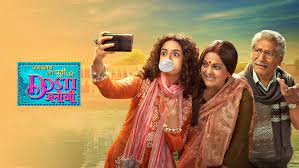Serial gossip refers to the deep interest and endless discussions that Serial Gossip fans and media indulge in surrounding ongoing television series, web dramas, and serialized fiction. It blurs the line between reality and fiction as viewers become invested in the fictional lives of characters, sometimes even to the extent of speculating about future plot developments or creating theories that rival the original storyline. This phenomenon has evolved alongside the growth of digital communication, making it a dynamic aspect of modern entertainment culture.
The Origins of Serial Gossip
The concept of serialized storytelling is not new. It began with 19th-century novels published in magazines chapter by chapter, such as Charles Dickens’ The Pickwick Papers or Alexandre Dumas’ The Count of Monte Cristo. Readers eagerly awaited each installment, discussing the fates of beloved characters and guessing what might happen next. In the modern era, television soaps, serialized dramas, and web series have taken over this role, creating a fertile ground for serial gossip.
Why People Love Serial Gossip
- Emotional Investment
Serial dramas often feature complex characters with multi-faceted story arcs. As viewers follow these arcs over weeks, months, or even years, they develop an emotional connection to the characters. The more emotionally invested a viewer becomes, the more likely they are to discuss plot points, speculate on outcomes, or express frustration over character decisions. - Community Building
Gossiping about serials provides a sense of community. Fans gather online on forums, social media, and fan sites to share theories, spoilers, and interpretations. The communal experience of waiting for a new episode fosters a shared culture, complete with inside jokes, memes, and fan-created content. - Escapism and Imagination
Speculating on fictional worlds offers a mental escape from real life. Gossip about the fictional relationships, conflicts, and secrets of a show lets viewers explore scenarios they may never encounter personally. Shows like Game of Thrones, Breaking Bad, and Bridgerton have driven extensive discussions, highlighting the appeal of deeply immersive storytelling.
Types of Serial Gossip
- Plot Speculation
Fans enjoy predicting future storylines. For example, theories about Jon Snow’s parentage dominated discussions during Game of Thrones. Similarly, predictions about who will survive in a thriller or who the true villain is in a mystery series fuel ongoing speculation. - Character Relationships (Shipping)
“Shipping” refers to fans’ desire for specific characters to become romantically involved. This type of gossip has created dedicated followings, often leading to “ship wars” where fans debate the merits of different relationships. - Behind-the-Scenes Drama
Serial gossip extends to the actors and production teams behind popular series. Rumors about casting choices, on-set disputes, or real-life romances between actors can spark just as much conversation as the show itself.
The Role of Media and Social Platforms
Media outlets, blogs, and social media channels thrive on serial gossip. Platforms like Reddit, YouTube, and Twitter provide spaces where fans dissect each episode, analyze every frame for hidden meanings, and debate theories with fervor. Recap videos, breakdowns, and spoiler discussions are part of a thriving subculture that keeps fans engaged between episodes.
Ethical Considerations
While serial gossip is largely harmless, it can sometimes cross into problematic territory, especially when actors’ private lives are involved. It’s important to distinguish between discussing fictional content and invading real people’s privacy. Responsible gossip should focus on the content rather than the creators’ personal lives.
Conclusion
Serial gossip enriches the experience of serialized storytelling, turning passive viewing into an interactive cultural event. It’s a testament to the power of narrative and the human love for storytelling, community, and imagination. As long as stories are told in installments, serial gossip will continue to thrive, offering endless opportunities for fans to speculate, debate, and celebrate the worlds of fiction.

